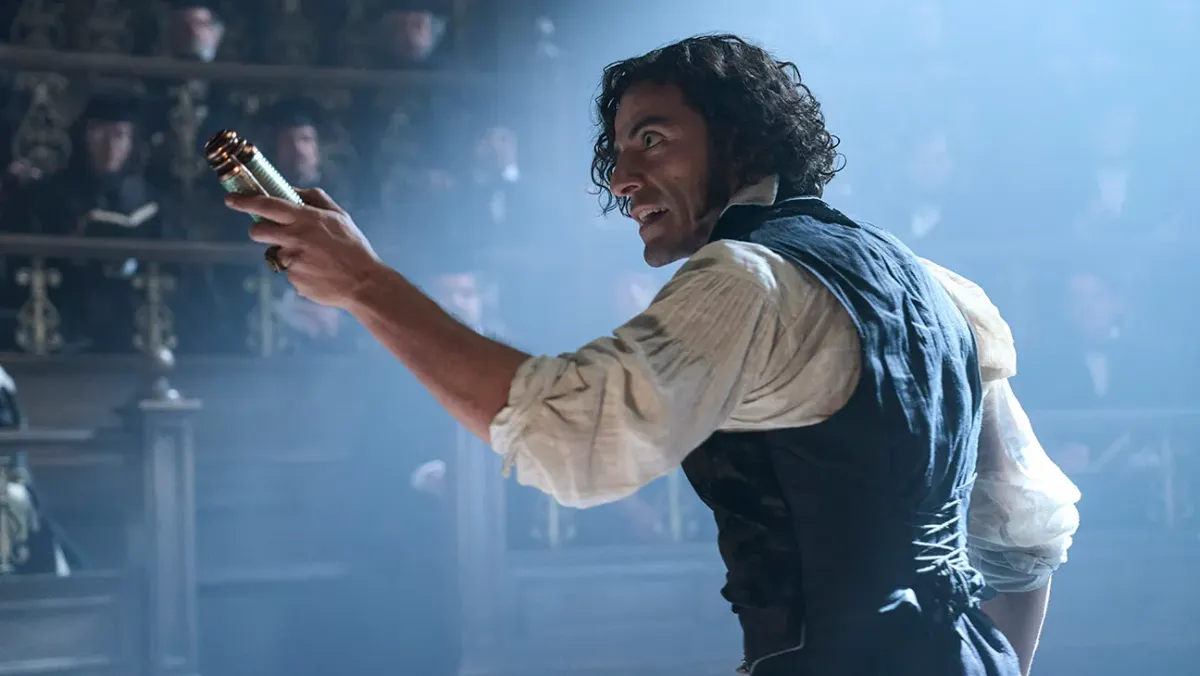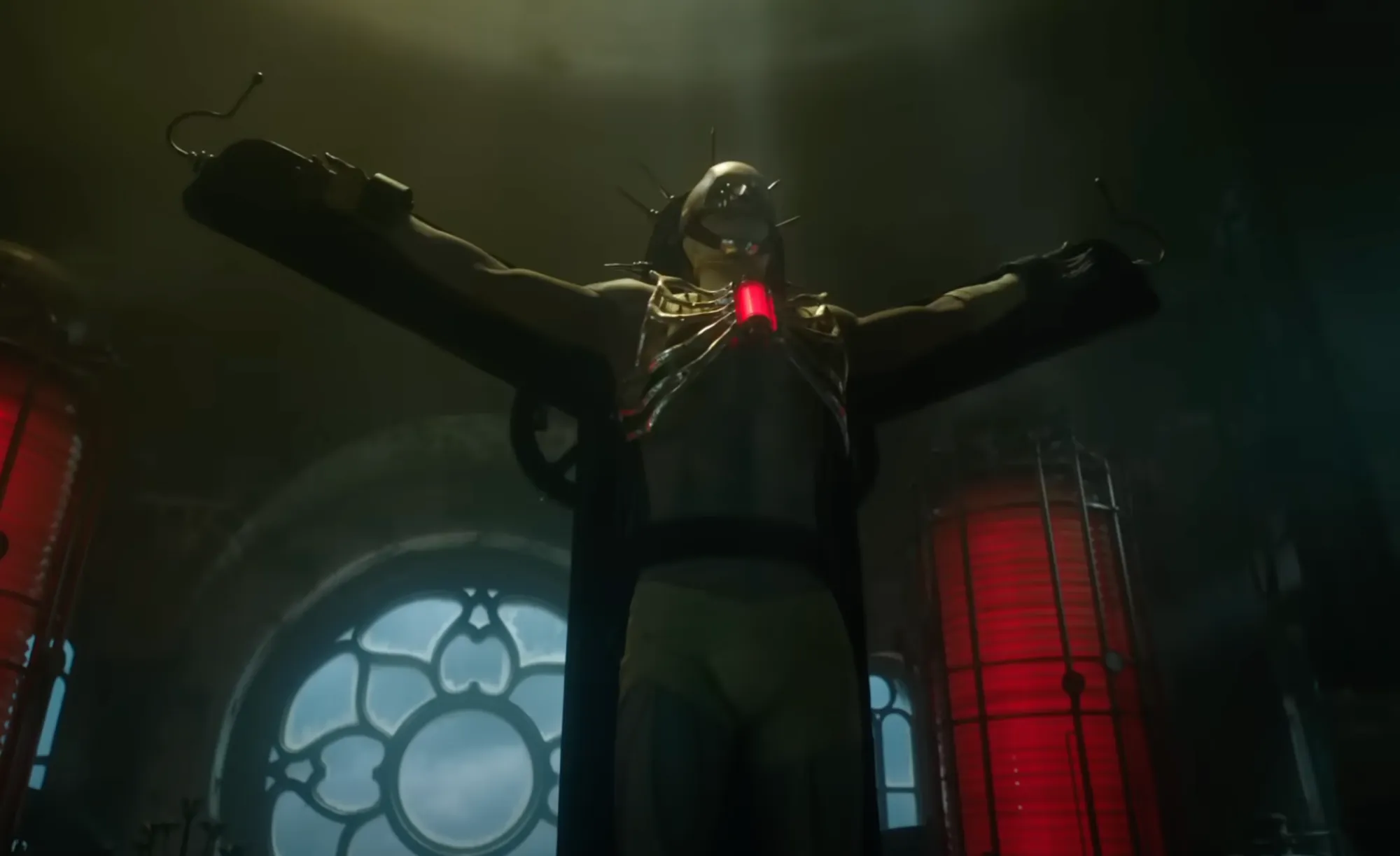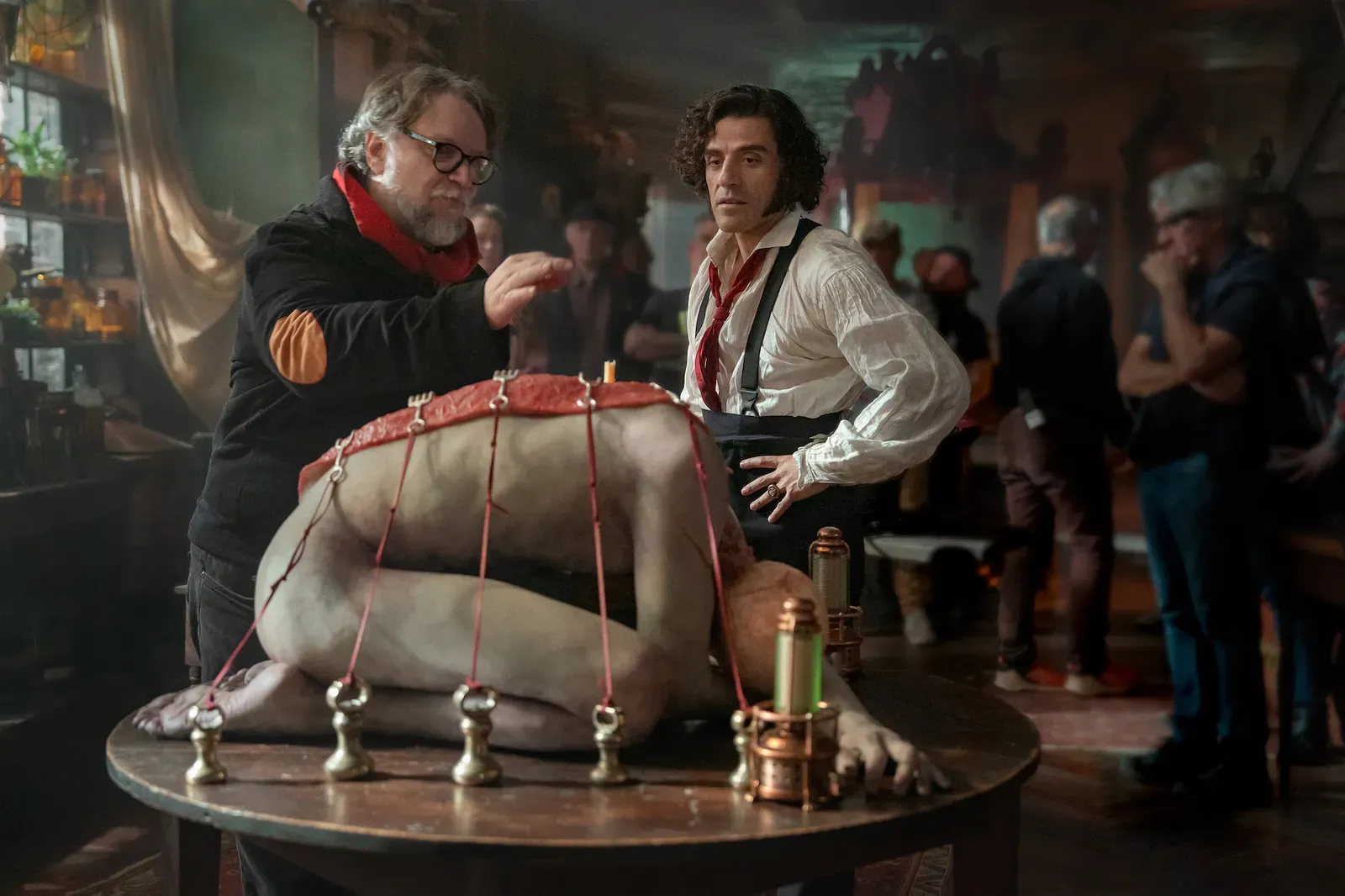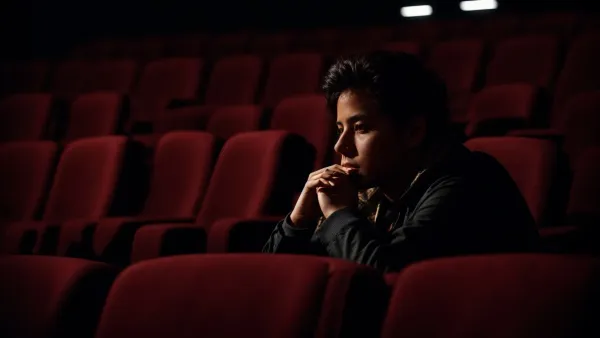Frankenstein Review: Guillermo del Toro's Opulent Adaptation Struggles For Balance Between Creator and Creation
Oscar Isaac dominates while Jacob Elordi tries to bring depth to an iconic monster

This post is free but it’s worth it to become a paid member of The Film Maven community! Paid subscribers are the backbone of The Film Maven who support independent journalism, as well as female- and disabled-created content. Paid Film Mavens get access to two-three exclusive articles a week including access to my series The Trade and Popcorn Disabilities, as well as the ability to chat with me on The Film Maven's Discord server.
Don't want to commit to a subscription? Leave a tip to show you enjoy what you're reading.
Enjoy what you’re reading? Share it with friends. Help us get to 1,000 subscribers by the end of 2025 and I’ll do a full written and video review of Francis Ford Coppola’s Megalopolis.
Read more about the history of disability in film by pre-ordering my upcoming book, Popcorn Disabilities: The Highs and Lows of Disabled Representation in the Movies. I not only expand on what you’re reading here, but examine the stereotypes, tropes, and the good, bad (and really ugly) of disabled movies. Preorder the book by clicking this link! Send me proof of your preorder and I’ll give you a paid subscription to The Film Maven for one year!
Much like Little Women or Romeo and Juliet, there's an adaptation of Mary Shelley's Gothic novel for every generation. Whether that be the OG from 1931 with Boris Karloff, to the hyper-horny 1990s take made by Kenneth Branagh, Shelley's creation has been inspiring directors for decades, and it's not stopping anytime soon. The latest to tackle the book is Guillermo del Toro, one of our contemporary Masters of Horror who has long sought this as a passion project.
Del Toro's take on Shelley holds the opulence and the smoldering sexuality of the Branagh take, while retaining much of the original novel and crafting a monster with the empathy and sensitivity found in the 1931 iteration. This division though extends to the actual narrative, which swings from wild Gothic excess to more contemplative explorations on the meaning of life. Oscar Isaac, Mia Goth and Jacob Elordi give the characters their all with various rates of return. Even if it's not an instant classic, del Toro certainly understands Frankenstein and gives us a helluva ride.
In 1857, a ship in the North Pole discovers the body of a broken man near death. The man is Victor Frankenstein (Oscar Isaac) who recounts his story of crafting a creature out of dead body parts and reanimating it. But presuming the Creature (Jacob Elordi) is a monster with zero intelligence, Victor hopes to destroy it. Thus starts a cat and mouse game with the Creature seeking friendship and a father as Victor tries harder to escape what he has wrought.
The basic tenets of Shelley's 1881 novel are present and accounted for in del Toro's Frankenstein. What changes is the meaning behind Frankenstein's creation which is less about playing God (though the tagline explicitly states "only monsters play God") and more about shirking off the responsibilities of fatherhood. As Victor lays out in the film's beginning--the first half devoted to his recounting of events--he was a young boy with an acrimonious relationship to his father and an overtly close one to his mother (also played by Goth). There's an air of the incestuous to mother and son's dynamic, with Isaac's Victor practically purring about how when his father was gone "mother was mine."

There's an air of the wild, Gothic hedonism found in del Toro's Crimson Peak in this first half, a fact enhanced by Isaac's performance which conveys the character's arrogance and braggadocio. For this interpretation of Victor, there's an air of "who wouldn't want me" to him, particularly in his dealings with Goth's Elizabeth, the fiancee of his younger, guppy-esque little brother William (Felix Kammerer). Instead of playing up a relationship between Elizabeth and Victor, Elizabeth s given more credit for understanding exactly the type of man Victor is: one who is selfish and believes he's owed everything, including women, both because of his presumed genius and thinking he's an underdog.
This is one of Isaac's best performances in awhile. He wears Kate Hawley's excellent costumes--that see him wearing foppish hats and shirts--like a boss and creates a Frankenstein that is at once pathetic, frightening, and determined. It'd be interesting to hear if del Toro lifted from the likes of Elon Musk for the presentation of Frankenstein as an omnipotent God-man. Isaac also finds the humor in how ridiculous Victor is. At one point, he sneaks into a confessional to hear Elizabeth, only for the two to realize they're each being played to hilarious effect.
Del Toro never shies away from the blood and gore, and this take on Frankenstein is no different. The goal is to emphasize how garish and macabre Victor's plans are, so watching reanimated torsos thrash around in pain certainly accomplishes that, and makes the audience wonder what's practical effects and what isn't. The arrival of Hallender (Christoph Waltz), Elizabeth's syphilitic uncle who wants to see Frankenstein create a full man, marks the moment where Victor leaves science behind to do something more.
The creation of the actual monster isn't as iconic as in the 1931 version--no shouting "It's alive" here--but that isn't del Toro's point. The concept here is more about the birthing, proverbially speaking, of the monster, and what happens when it isn't what Victor wants. The arrival of Elordi into the narrative changes the entire middle and back half of Frankenstein, with the emphasis more on a child trying hard to find love and having it unreciprocated by a parent who thinks they're deficient. (It's blurry whether I'd consider this an out-and-out disability narrative or not.)

Elordi brings a quieter energy to the movie. There's a remove to him, maybe because of the makeup effects that make him look more like a cross between the Prometheus aliens and the Na'vi (with a smidge of Rocky from Rocky Horror in his outfit). Unlike the lumbering, shambolic, man-child of past interpretations, Elordi makes his Creature more balletic, leaping on and off things. His near-silent performance forces him to rely on facial expressions to convey the character's sense of shame and fear. There's less a childishness to the character and one more in a perpetual state of awe. Even his dynamic with Elizabeth feels more motivated by a Tempest-esque level of meeting a new person than a standard romance; though del Toro does love him a girl falling for a monster.
But what had such energy and rapid-fire pacing for the first hour slows demonstrably in the second as the Creature takes over, filling in the details of his life without Victor. The famous blind man section of the movie dominates this narrative which is sweet, until the arrival of some epic scale CGI wolves make one feel as if they're in a totally different movie.
The rest of the cast are purely the noise that surrounds Elordi and Isaac. Mia Goth plays both Elizabeth and Victor's mother, and while she has a rather limited presence overall she does a decent job. And, again, those Kate Hawley costumes work beautifully on her. Waltz and Kammerer are also decent, but they don't have much to do other than play the voices either repelling or pushing Victor forward.
Frankenstein, in del Toro's hands, is another story of fathers and sons akin to his 2022 take on Pinocchio. Visually, Frankenstein is a feast of impeccable costumes and production design. And the first hour of the movie is thrilling, with Isaac in fine form. The second half is muted, but still has a power to it, coupled with a unique performance from Elordi.
Grade: B-
Frankenstein drops November 7.
What's your favorite Frankenstein adaptation? Drop it in the comments.
The Film Maven is seeking sponsors to help us do more! If you're interested in sponsoring independent journalism get in touch.
Let’s work together! If you have editorial opportunities and would like to collaborate with me on an entertainment or disability project, drop me a message.




